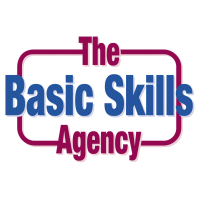English - Reading and Writing
Purpose of study
English has a pre-eminent place in education and in society. A high-quality education in English will teach pupils to speak and write fluently so that they can communicate their ideas and emotions to others, and through their reading and listening, others can communicate with them. Through reading in particular, pupils have a chance to develop culturally, emotionally, intellectually, socially and spiritually. Literature, especially, plays a key role in such development. Reading also enables pupils both to acquire knowledge and to build on what they already know. All the skills of language are essential to participating fully as a member of society; pupils who do not learn to speak, read and write fluently and confidently are effectively disenfranchised.
Aims
The overarching aim for English in the national curriculum is to promote high standards of language and literacy by equipping pupils with a strong command of the spoken and written language, and to develop their love of literature through widespread reading for enjoyment. The national curriculum for English aims to ensure that all pupils:
- read easily, fluently and with good understanding
- develop the habit of reading widely and often, for both pleasure and information
- acquire a wide vocabulary, an understanding of grammar and knowledge of linguistic conventions for reading, writing and spoken language
- appreciate our rich and varied literary heritage
- write clearly, accurately and coherently, adapting their language and style in and for a range of contexts, purposes and audiences
- use discussion in order to learn; they should be able to elaborate and explain clearly their understanding and ideas
-
are competent in the arts of speaking and listening, making formal presentations, demonstrating to others and participating in debate.
(Taken from the Statutory guidance for the National curriculum in England: English programmes of study.)
Writing at Belgrave
Our writing curriculum is designed to provide a broad and balanced education that meets the needs of all children. We follow the award-winning Ready Steady Write approach from Literacy Counts to develop confident, independent and successful writers with high aspirations. Our writing curriculum is research-informed and impact-proven, carefully designed to support all children to master the foundational skills and write for a clear audience and purpose. Through the use of high-quality, vocabulary-rich texts, we provide exciting and meaningful reasons to write. Children are immersed in literature and taught to craft their writing with precision, using a range of pedagogical approaches, including sentence accuracy, modelled writing and shared writing, as well as regular opportunities for editing.
The importance of spoken language on writing
We value spoken language as a foundation for writing. Through structured talk, drama and vocabulary exploration, children learn how to organise and express their ideas clearly before writing them down. Our aim is for every child – regardless of need – to write fluently and take pride in their work. We want our pupils to leave primary school as enthusiastic writers, ready for the next stage of their education.
Please find our ‘English on a page’ document below for further information to find out about the intent, implementation and impact.
Handwriting
Our intention is to develop fluent handwriting which allows pupils to write automatically, freeing up their attention for planning, composing, and revising their ideas with confidence. Clear and effortless handwriting also boosts motivation and ensures pupils’ work is easily understood and valued by others. At Belgrave we teach handwriting through a clearly sequenced progression which begins in Reception.
Reading
Writing














